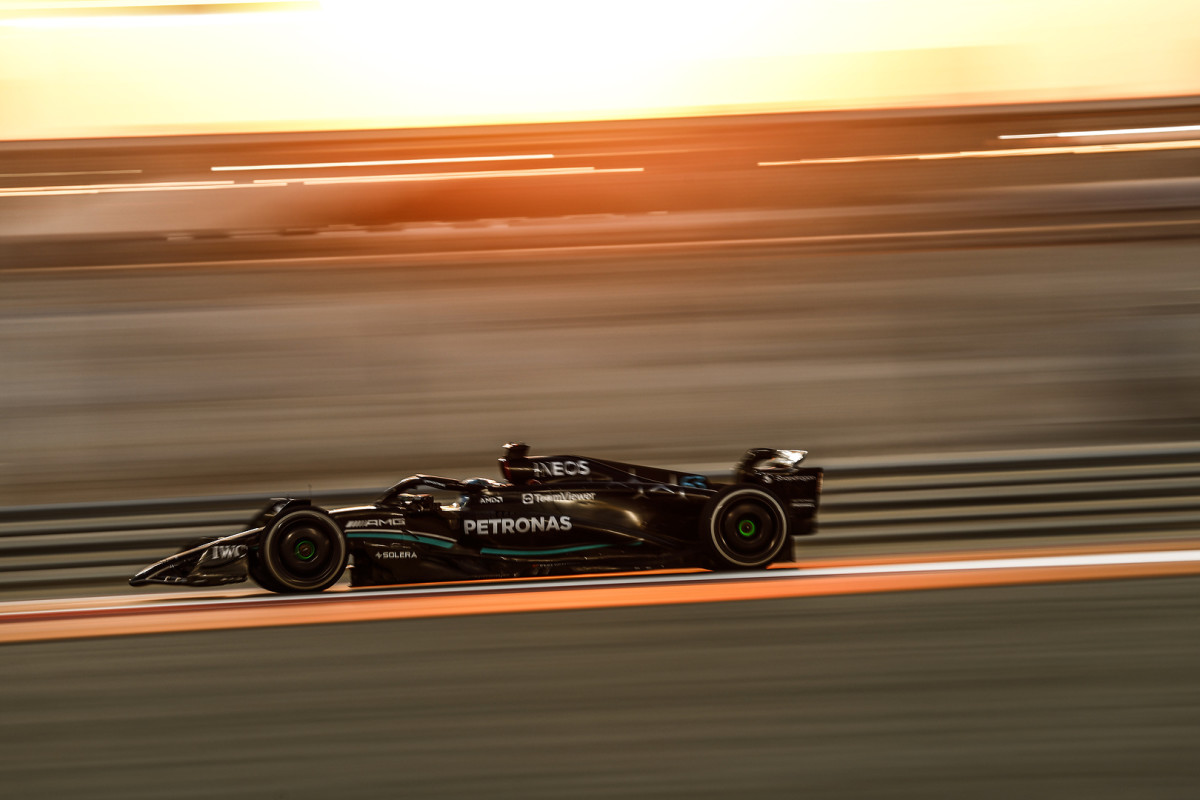F1 News: Former Driver On Mercedes' "Confusing" Performance Shift In Brazilian GP

Mercedes appeared to have lost their competitive edge during the Brazilian Grand Prix weekend. Lewis Hamilton and George Russell, along with the entire Mercedes team, faced a challenging weekend that saw them lag behind as a midfield team, overshadowed even by rivals like Alpine.
Key Takeaways:
- The team that celebrated a win at the same venue last season experienced a dramatic downturn, with Lewis Hamilton unable to compete with Alpine, marking a performance indicative of a midfield team.
- Karun Chandhok of Sky Sports F1 highlights the confusion within Mercedes, citing a lack of understanding of their performance inconsistency as a critical concern for the team’s future.
- Chandhok points to McLaren’s clear trajectory of improvement and consistent performance across varied conditions as a stark contrast to the unpredictable form of Mercedes, emphasising the importance of a clear development direction.
Listen To The Latest Driven Mad Podcast Episode
The Brazilian Grand Prix will be remembered as a stark turning point for the Mercedes Formula 1 team, as they faced an unexpected struggle that saw them performing amidst the midfield pack. Last year's triumph at the same venue became a distant memory as both Lewis Hamilton and George Russell grappled with a car that was no match for its competitors, even falling short against Alpine.
Karun Chandhok voiced his observations on the perplexing state of affairs within the Mercedes squad.
"I think there's a lot of head scratching going on there.
"They need to understand as a collective group where the root of this problem is, because they've had the highs of the last couple of races where they were quick.
"Let's not forget they were excluded in Austin. But you can't produce a world championship campaign, to fight for the championship, if you've got these ups and downs with no clear understanding as to why."

Chandhok noted the lack of anticipatory measures for the struggles at Interlagos, suggesting that a known weakness could have been strategically managed. The current scenario, however, depicted a team bewildered by their own performance peaks and valleys.
"If you came to a track and went, we know we're going to struggle here. We know we're going to be weak here. We'll take it on the chin. That's fine. But that doesn't seem to be the case.
"They seem to have no clear understanding of why the highs are the highs and the lows are the lows. I think that is a worry going into next year."
Drawing parallels with McLaren, Chandhok shed light on a contrasting blueprint of progression.
"McLaren started the year being nowhere, but were very vocal about the fact that they said at the start of the season, even at testing, we're going to struggle at the start of the year. But when they brought the upgrade in Austria, it's moved forward.
"And since then, they've been at the front at every type of track, every type of format, every type of weekend, track conditions, temperatures, wet, dry, they've all been there. That falls right for next year. Because that gives the aero department and the designers confidence that the path they're going down is working.
"For Mercedes, they're not having that. They had Qatar, they were reasonably quick. George had a good race. This weekend they were slower than the AlfaTauris, Alpines, way slower than McLaren Red Bull and Aston Martin. It's just confusing."

